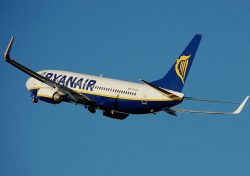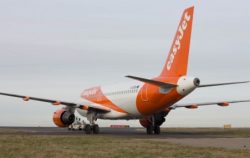Does the topic of Brexit have anything to do with aviation? Actually, quite a lot.
Some readers may not recall (or may not believe!) that there was a time when an airline couldn’t just put a fare on sale in Europe; it had to get Government approval. Not just from one government but two, (at both ends of the route in question). A national “flag carrier” could object and prevent a price from being offered in the market. Today, thanks to EU wide liberalisation, all airlines owned in the EU are free to price as they wish. Imagine a supermarket having to wait maybe a week or so to be told what price it can charge for a product!
Today we take it for granted that we can fly all over Europe easily & cheaply. This wasn’t the case even 20 years ago. Easy to forget that in the past the right to fly between one member state and another was limited to “flag carriers” from each country and maybe one other airline from either side. There were far fewer and much more expensive air services available then than is the case today.
It’s thanks to the “Open Skies” regime agreed by member states that all this has changed.
This key European agreement broke down historic barriers and opened up competition, permitting airlines, majority owned within the EU, to fly anywhere they like within the EU. Choice of airlines and destinations has increased massively and fares have fallen dramatically. Low Cost Airlines in particular have made good use of Open Skies. Air travel has been democratised. More people can afford to fly to go on holiday, to visit family and to do business.
Spelled out, before Open Skies, an Irish airline like Ryanair (which now flies over 100m people annually all over Europe) couldn’t have flown between two countries if Ireland wasn’t the destination or origin. Similarly so for easyJet if the UK wasn’t the origin or destination.
Sure, there are frustrations of excess bureaucracy, over regulation in non safety areas and slow progress on air traffic control improvements. But it’s better for the industry to work together to tackle this within the EU rather than to go back to the bad old fragmented days of one to one “bilateral” government negotiations.
 There is also an increasing value to air transport in being part of the bigger negotiating block which Europe provides when negotiating other liberal air service agreements with the rising economic players of the 21st Century world.
There is also an increasing value to air transport in being part of the bigger negotiating block which Europe provides when negotiating other liberal air service agreements with the rising economic players of the 21st Century world.
There is more work to be done but Brexit would be a seriously retrograde step. It would be turning back the clock on progress made and bring bigger risks and uncertainties which the airline industry doesn’t need right now. You don’t know what you’ve got ’til it’s gone.
Leave a Reply